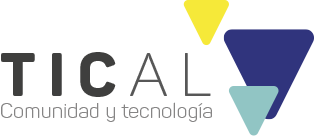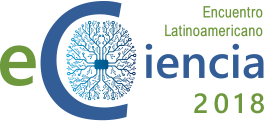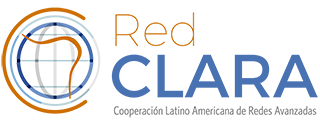
Digital Transformation in Institutions of Higher Education, Science and Culture
Important dates:
- February 26, 2018: Opening of the Calls
- June 11, 2018: Closing of the Calls
- June 29, 2018: Notification of the selected authors
- 03-05 September 2018: TICAL2018 and 2nd Latin American e-Science Meeting - Cartagena de Indias, Colombia
TICAL2018 Call for papers
TICAL2018 & 2nd Latin American e-Science Meeting Authors Guide
- Collaboration
- Processes improvement
- Customization
- ICT Governance and Management
- Infrastructure and security
Customization
Implemented ICT solutions that allow to adapt services to the individual needs of different actors in the university community and to improve their performance. For example: data-based learning analysis solutions with machine learning algorithms that customize learning paths according to the particularities of the student (profile, course, learning form, trajectory, among others); solutions that allow the inclusion of people with different skills, etc.
Mandatory requirements
- Experiences: the papers should strongly focus on experiences. TICAL is an area where people share successes and mistakes. Scientific or merely academic works are not intended.
- Projects or services: TICAL is seeking for papers that describe executed projects or implemented services and not only ideas or not executed proposals.
- Focus on ICT: TICAL brings together the ICT leaders of the universities, which is why it is sought that the papers presented are of interest to them.
- Impact on university strategy: It is considered as a very significant value that the paper describes, if appropriate, the impact of the technological solution in the university strategy.
- Classification by thematic axis: Authors must indicate the main axis under which they present their papers. It is possible to choose a secondary axis if the work includes more than one.
- Problem and context in which the project was developed
- Description of the technological solution that was implemented (if the paper has as its theme an experience implemented in ICT management or governance, it is necessary to describe it).
- Critical and relevant aspects to be highlighted and detailed.
- Obtained results and its impact.
- Learning (errors and hits)
- Not expected impacts (if any).
- A paper with a minimum length of eight (8) and a maximum of 20 pages, which describes the work and its results. The official languages are Spanish and Portuguese.
- Papers must be submitted in strict accordance to the format established by the TICAL2018 Conference and the 2nd Latin American e-Science Meeting Authors Guide (download here) in Word and PDF format.
- 1. An English copy of the abstract (200-300 words).
- 2. A presentation of a maximum of 15 minutes, showing the experience developed in all its stages (15 minutes is the maximum time for presentation, a deadline that will be strictly adhered to).







